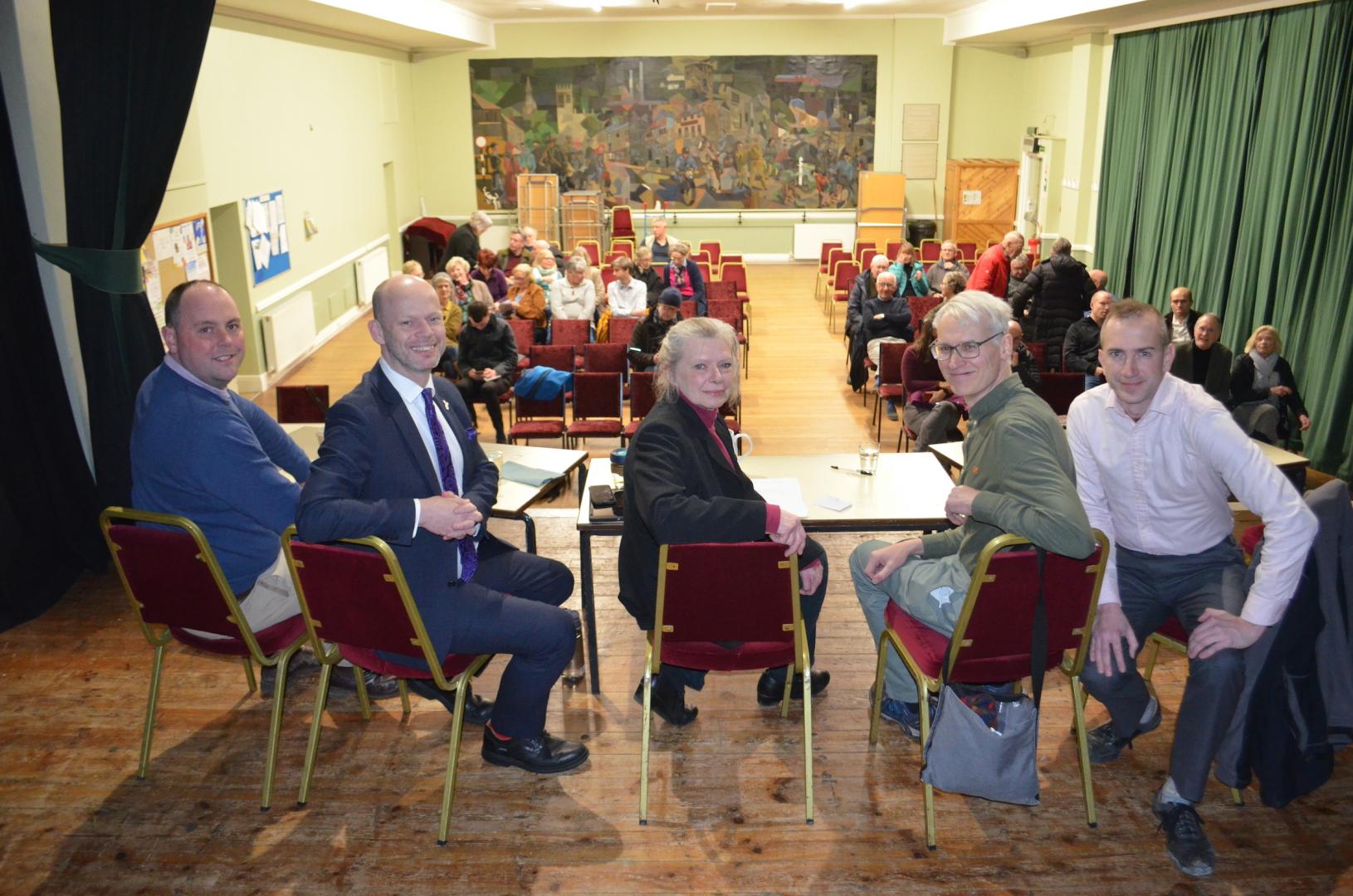THE road to becoming North East mayor brought candidates to a chilly Barnard Castle on Friday night.
An audience of about 40 was on hand to hear four of the six hopefuls make their pitch – Labour’s Kim McGuinness cited a previous engagement and Reform UK’s Paul Donaghy was also absent.
That left Rhonda Hart-Davis, who chaired the evening, to welcome Guy Renner- Thompson, for the Conservatives, the Green Party’s Andrew Gray, Lib-Dem Aidan King and independent Jamie Driscoll, to the stage.
If you’ve heard of any of them it is likely to be Mr Driscoll, who is currently North of Tyne mayor until that position is scrapped and absorbed into the new North East authority.
Elected under the Labour flag, he made headlines when he was denied his chance to represent the party in the regional mayoral election.
As hustings go, this was a tricky one as a North East Mayoral Combined Authority is something new and represents a leap into the unknown.
Mr Driscoll is proud of his record as North of Tyne mayor and wants to replicate his successes on a regional scale.
He sees the election as a two-horse race between himself and Ms McGuinness.
Dr King, who works at Newcastle’s RVI after spells as a pharmacist in Middleton-in- Teesdale and at Bishop Auckland Hospital, wants to build Europe’s largest onshore wind farm, stretching all the way from Barney to Hexham, as well as hundreds of thousands of new houses.
Mr Gray made the case for people to live simpler lives with lower consumption. Among his top priorities would be better insulating the “very poor quality” houses in the region along with a strong emphasis on listening to what communities need.
Mr Renner-Thompson comes from a farming family, serves on Northumberland County Council and runs a building firm.
He wants to put more money into people’s pockets by creating good quality jobs. Coming from Bamburgh, in Northumberland and realising the importance of the car to residents of rural areas, he also pledged never to penalise drivers.
He said his rural strategy would have food production at its heart, stating anything that would result in the loss of productive farmland would not be supported under his watch.
When the floor was opened up to questions, all candidates stressed how important improving rural bus services would be if elected, while other topics covered arts and culture, tackling poverty, climate change and women’s representation.
However, perhaps the most pertinent question came from Lee Stenson, who asked how a single mayor could possible hope to ensure such a diverse area stretching from Bowes to Berwick-upon-Tweed could receive equal treatment.
Mr Renner-Thompson said he was often asked: “All this money isn’t just going to Newcastle is it?”
He told the meeting a “rural board” had been written into the devolution deal to ensure the more far-flung areas were not forgotten, adding that when Northumberland had signed up to the North of Tyne mayoral authority he had been a sceptic at first before being won over once he had seen it in action.
Mr Drsicoll also highlighted the general scepticism of Northumberland residents who were now “enthusiastic” about the mayor.
Mr Gray said he simply wasn’t in favour of a regional mayor, believing too much power would rest with one person, but as this was the only form of devolution on the table he was going along with it.
“We have got to make it work for everyone or it doesn’t work for anyone,” he said.
Agreeing with this sentiment, Dr King pointed out there was very little the mayor could do acting on his own.
“Everything else needs to be voted through by the board made up of the seven council leaders.”
Mr Renner-Thompson concluded: “There is very little public knowledge about what is happening.
“Whether we like it or not, it is happening and the vote is not very far away.”







